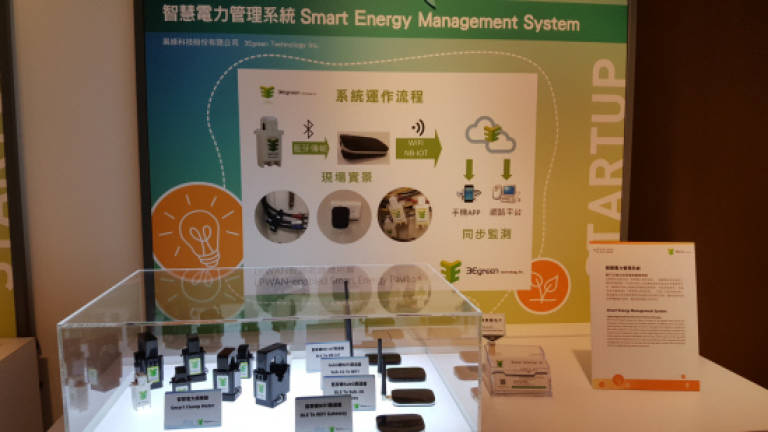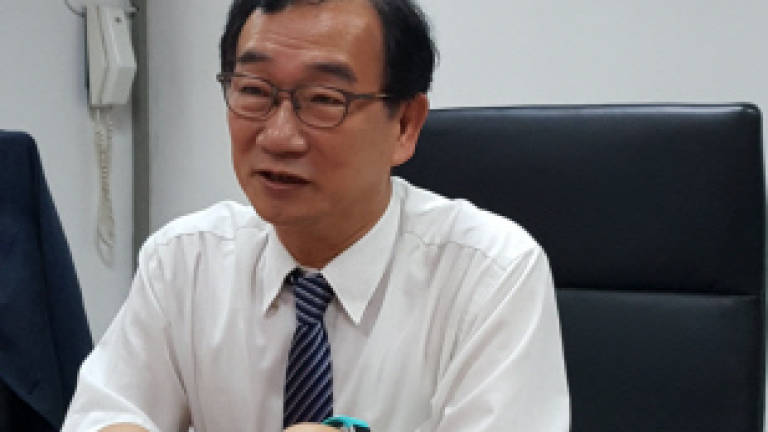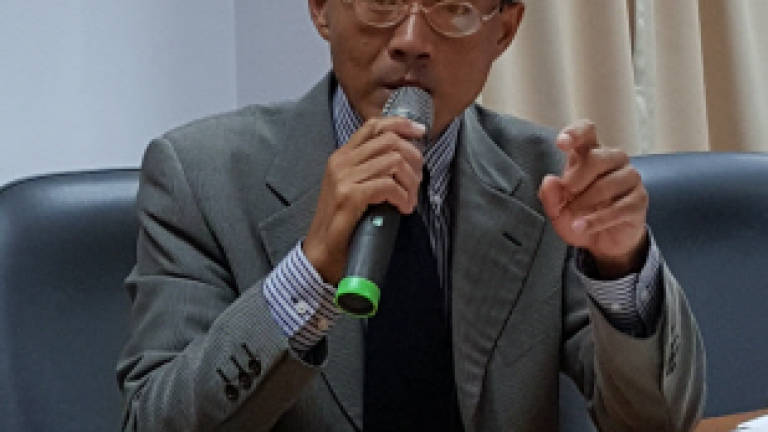Taiwan to deepen economic ties with neighbours



TAIPEI: Against the backdrop of the ongoing sovereign dispute with China – Taiwan, as an island territory – does not see itself being isolated from the global economy, but is looking forward to strengthening ties.
The New Southbound Policy is seen as one of Taiwan's strategies to integrate with neighbouring countries. It is also of the utmost priority for Taiwan to enhance its competitiveness globally, especially when it remains heavily dependent on trade.
There are a total of 18 target countries under the New Southbound Policy, including the 10 Asean countries as well as Australia, Bangladesh, Bhutan, India, Nepal, New Zealand, Pakistan and Sri Lanka.
During a recent media familiarisation to Taiwan, the deputy director-general of the Bureau of Foreign Trade, Ministry of Economic Affairs, Lee Guann-jyh, said he is hoping that the global community could focus more on the "positive side" of Taiwan as well as its achievements and contribution.
"We want to engage with the Asean countries. Economic cooperation is just one of the approaches. We also want to enhance the people links, tourism and other aspects. Social economic is very important for Taiwan. As we're close to Asean, we would like to contribute to the development of regional links."
Taiwan is the world's 27th largest economy as well as the 18th and 19th biggest export and import market, respectively. It is the key in the global supply chain with main trading partners such as China, Japan, Asean and the European Union.
Trade with Asean accounts for 15% of Taiwan's total trade, according to Lee.
He stressed that the New Southbound Policy is not meant to counter China's Belt and Road Initiative, but to promote more two-way investment flows between Taiwan and countries in the region.
"It (The New Southbound Policy) has unique value and special contribution. The fundamentals are different from the Belt and Road Initiative."
Like many countries, Malaysia supports the "One China Policy", but this has never been a hindrance to trade and investment flows with Taiwan.
In 2017, Taiwan was Malaysia's seventh largest trading partner with bilateral trade amounting to US$17.55 billion (RM72.1 billion).
On this, Lee said Taiwan is looking to deepen its collaboration with Malaysia through the Malaysia and Taiwan Economic Cooperation Committee (MTECC) platform. Established in 2016, MTECC has held three conferences to promote collaboration in areas such as trade, investment, and SME development.
"The 3rd MTECC conference and the 5th Trade Working Group meeting, hosted by Malaysia, were held in the first half of 2018. Both
sides explored cooperation opportunities and gained concrete achievements in the halal,
e-commerce, and biotechnology sectors, as well as in trade facilitation. For instance, the difficulties of exporting Taiwan's health supplements to Malaysia were resolved, enabling Malaysian consumers to experience Taiwan's high-quality products," Lee said.
He added that Taiwan also assists Malaysia's Industry 4.0 initiative and automated machinery development.
"We plan to jointly promote the upgrade of digital capabilities by specifically focusing on providing smart manufacturing solutions to SMEs as well as assisting the transformation of automated manufacturing in Malaysia to enhance production efficiency and competitive capabilities."
Apart from that, Lee said, both Malaysia and Taiwan are promoting industrial linkages through the Taiwan-Malaysia Industrial Collaboration Summit, which this year will be held on Sept 19 in Kuala Lumpur.
"Both sides will continue to explore cooperation and business opportunities in areas of textiles, food and medicine, cosmetics, smart cities and information services through this dialogue platform. Technology and bio-tech corporations will also sign a memorandum of cooperation to initiate further exchanges."
In supporting Malaysia's efforts in developing the e-commerce and halal industries, the 2017 Taiwan Expo, which was held from Nov 9 to 11 in Kuala Lumpur, set up the "Taiwan Innovex" and "Halal Taiwan" pavilions, Lee said.
The expo attracted 20,000 participants and promoted business opportunities worth up to US$36 million.
The 2018 Taiwan Expo will be held from Oct 25 to 27.
Lee also highlighted Taiwan was among the biggest participating team comprising 36 companies in the Malaysia International Halal Showcase 2018 which took place from April 4 -7.
"Under Taiwan's New Southbound Policy, the development of the halal industry and transformation of Taiwan into a Muslim-friendly environment have been top priorities on our to-do list. Taiwan has thus established a collaboration network with Jakim and Halal Development Cooperation. We hope both sides can continue to deepen cooperation and jointly explore global halal markets," Lee said.
LOOKING TO BE PART OF THE CPTPP
In a bid to forge closer ties with the global economy, Taiwan is looking to be part of the Comprehensive and Progressive Agreement for Trans-Pacific Partnership (CPTPP) for greater market access.
"Signing the CPTPP is equivalent to signing an FTA (free trade agreement) with 11 members. CPTPP members account for 25% of our total trade, 21% of our exports and 30% of our accumulated investments abroad, yet Taiwan only signs ECA with New Zealand and Singapore," said Lee.
He said given the growing trends of global trade and regional integration, Taiwan will seek to maximise free trade, whether through bilateral, regional, or multilateral trade negotiations, as long as they adhere to the principles of reciprocity of fairness.
Meanwhile, director of the economic division of the Taipei Economic and Cultural Office in Malaysia, David Hsu, said the participation of Taiwan in the CPTPP could eliminate tariffs on components and encourage more Taiwanese companies to invest in Malaysia.
"This will create more job opportunities for Malaysia, boost its exports and help connect Malaysia with the global value chains of ICT and other technology industries between Taiwan and Malaysia."
Hsu noted that Taiwan's inclusion in the CPTPP will make it easier for businesses from both economies to strengthen cooperation in Malaysia's national key economic areas especially in the energy, financial services, electrical and electronics and healthcare sectors.
DIVERSIFYING AWAY FROM CHINA
Ever since Taiwan President Tsai Ing-wen assumed office two years ago, there has been rising tensions between Taiwan and China, fuelling an urgency for the island to reduce its dependence on China.
"Diversification is highly needed for Taiwan. While there are great returns from investment and trade with China in the short term, it will not be something good in the future," said Chung-Hua Institution for Economic Research vice-president Dr Wang Jiann-chyuan.
According to Taiwan's Ministry of Foreign Affairs, Taiwan's exports to China stood at US$130.2 billion, accounting for 41% of its total exports. Meanwhile, Taiwan's imports from China accounted US$51.5 billion or 19.9% of total imports.
With the New Southbound Policy, Wang said, Taiwan could mitigate concentration risk to China as well as strengthening the regional integration. "Taiwan has to keep a long-term relationship with Asean countries."
Let's take a look at the economic conditions in Taiwan. It has seen moderate growth in the past five years with a 2.89% growth last year amid external headwinds. This year, it is expected to expand at a slower pace of 2.48% and to slow down further to 2.23% next year.
In 2017, Taiwan registered total trade value of US$576.52 billion, with exports and imports standing at US$317.25 billion and US$259.27 billion, respectively. The bulk of the exports comprise motor equipment and parts (43.7%), followed by mechanical appliances and parts (11.3%); plastic and plastic products (6.5%); optical precision instruments (5.2%); and fossil fuels (3.7%).
Inflation was at a comfortable level of 0.62% last year, but is projected to rise to 1.65% and 1.43% in 2018 and 2019, respectively.
Taiwan almost achieved a balanced budget last year with a fiscal deficit of 0.1% compared with a peak of 4.3% in 2009.
Wang said under the New Southbound Policy, Taiwan is targeting to further penetrate into the Asean market, promote bilateral cooperation in industry, investment, tourism, culture and talent.
He is of the view that Asean is a huge market for Taiwan considering that nearly 60% of global middle class will live in Asean, China and India by 2030. Developing Asian countries are also expected to contribute to about half of the global's gross domestic product by 2050.
"In the process of transforming from agricultural to industrial, Asean's growing economy and expanding middle class, with roughly 300 million people in 2015, has become a major market place."
Some of the potential industries are healthcare, education, culture, franchise and e-commerce.
TAIWAN'S ASIA SILICON VALLEY
Set up in Dec 25, 2016, Taiwan's Asia Silicon Valley Development Agency (ASVDA) has been tasked with assisting startups and the development of the Internet of Things (IoT) market locally as well as strengthening the creativity and entrepreneurship ecosystem.
The agency is targeting to increase Taiwan's IoT market share from 3.8% in 2015 to 4.2% in 2020, and 5% by 2025. It is also looking to grow 100 successful companies and develop three global ecosystem integrators in Taiwan.
ASVDA chief administrative officer Vivian Huang advised the Taiwan people to broaden their mindset in the globalisation era, particularly in dealing with the rapid changing IoT market.
"What we want to enhance more is the mindset, as Taiwan is a small island, they will have a 'domestic' mindset if they don't go study abroad, but there is no boundary for internet and IoT.
"So we need to have exposure out there to see the international market needs and changes in the global IoT market. They need to broaden their sights and views."
In addressing that, she said big companies have been invited to set up their research and development centres in Taiwan to help the local talents. "At the same time, we also send our young generation outside to work with the big enterprises. We must open the young entrepreneurs' mindset."
The agency is given a US$220 million annual budget by the government.